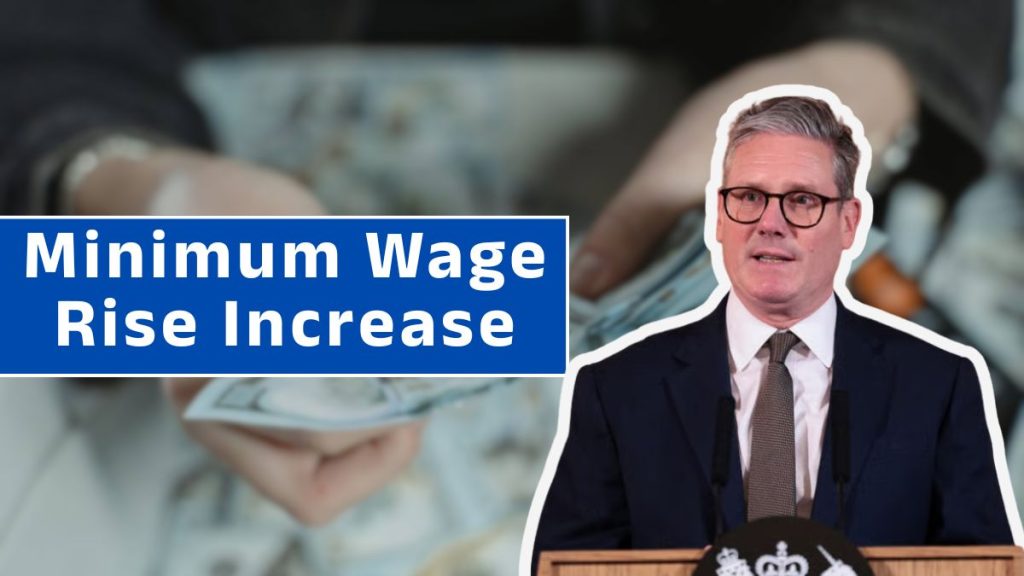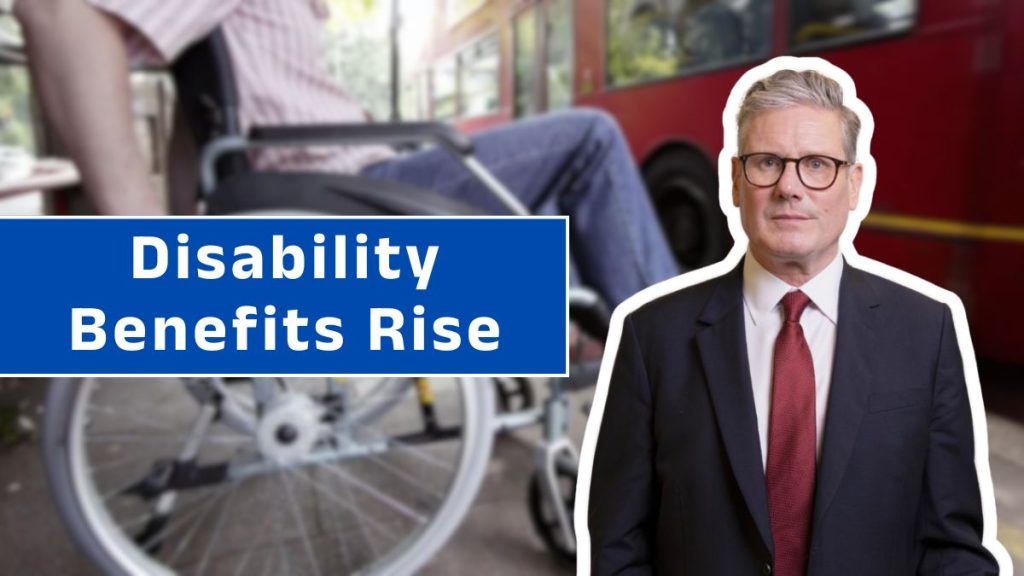HMRC has issued an urgent alert** to UK taxpayers, warning that around 758,000 people could be entitled to claim up to £2,242 each in back payments or tax credits. This unexpected opportunity forms part of HMRC’s continuing efforts to ensure people receive all financial support owed to them.
The announcement comes at a time of rising living costs, making this potential payout especially valuable for pensioners, working families, and individuals who may have missed claiming tax reliefs, allowances, or adjustments in previous years.
This comprehensive guide explains what the £2,242 claim is, who qualifies, how to check eligibility, deadlines you cannot miss, and the impact on household finances.
What is the £2,242 Claim About?
The payment opportunity refers to unclaimed tax reliefs, credits, or overpaid amounts that HMRC has identified. Many taxpayers either failed to submit a claim for specific credits or reliefs, or HMRC discovered overpayments following a review of past filings.
The maximum payout of £2,242 per individual is substantial, especially during a period when many households are under financial strain. According to HMRC, the back payments may cover a variety of cases, including:
- Income tax overpayments where too much was deducted in previous years.
- Child tax credit adjustments for families who did not receive their full entitlement.
- Pension relief top-ups missed by pensioners.
- Employment-related allowances that were overlooked or miscalculated.
This means the alert is relevant not just for one group, but for a wide section of society.
Who Can Claim the £2,242 Payment?
Eligibility depends on a person’s income, employment history, tax records, and family circumstances. HMRC has stressed that hundreds of thousands may qualify but are currently unaware.
Those who are most likely eligible include:
- Individuals who overpaid income tax in previous years.
- Families who are entitled to child tax credits but never claimed the full amount.
- Pensioners who missed out on pension tax relief top-ups.
- Employees with work-related expenses or incorrect tax codes.
HMRC is urging everyone to check their past tax records and not assume they are ineligible. Even small overlooked entitlements can accumulate into a significant payout.
Why the HMRC Alert is Crucial
The urgency of HMRC’s alert reflects how much money could otherwise be left unclaimed. For many households, £2,242 is equivalent to several months of utility bills, a rent payment, or a significant contribution to daily living costs.
With inflation still affecting food, energy, and housing costs, this money could provide vital breathing space for families, pensioners, and workers struggling to balance their budgets.
The alert also highlights a broader issue: many people are unaware of their entitlements because they assume tax calculations are always correct. HMRC is using this announcement as a reminder for all taxpayers to regularly review their tax returns and claim all eligible reliefs.
How to Check Eligibility
Checking if you qualify is straightforward, but it requires a close review of your tax history. HMRC recommends the following steps:
- Review past tax returns – Look for income tax overpayments or adjustments.
- Check child tax credit records – Ensure all dependents were accounted for correctly.
- Examine pension statements – Verify that all contributions received the appropriate tax relief.
- Use HMRC’s online calculator – This tool helps determine if you may have missed claims.
- Keep financial records up to date – Having accurate income and tax documents will make the process quicker.
Even if you are uncertain, HMRC advises checking, as many people mistakenly assume they are not eligible.
How to Claim the £2,242 Back Payment
The process of claiming depends on the type of adjustment or relief involved. HMRC offers several methods:
- Online Portal: Most claims can be made through the HMRC online service with a Government Gateway account.
- By Telephone: Taxpayers can call HMRC and receive assistance from an adviser.
- Paper Forms: For older claims or complex cases, paper applications may still be required.
Applicants should prepare:
- National Insurance number,
- Tax reference number,
- Income and benefit details.
Submitting incomplete or inaccurate information can cause delays, so double-checking details is essential.
Important Deadlines for Claims
One of the most critical aspects of this opportunity is the deadline. HMRC enforces strict cut-off dates:
- Tax overpayment claims are generally valid for up to four years after the end of the tax year in which the error occurred.
- Child tax credit adjustments may also have separate time limits.
- Pension and employment-related claims can vary depending on the specific allowance.
Missing these deadlines could mean permanently losing the entitlement. HMRC is urging eligible taxpayers to act quickly to avoid disappointment
How the Payment Will Be Made
Once HMRC approves a claim, the payment is usually made by direct bank transfer into the claimant’s registered account. If bank details are missing or outdated, a cheque may be issued instead.
Processing times vary, but payments typically take several weeks. Large volumes of claims can create delays, so applying early is strongly recommended.
Common Mistakes That Delay or Reduce Payments
Many people fail to receive their full entitlement because of avoidable mistakes. HMRC has listed common issues to avoid:
- Entering incorrect bank account details.
- Submitting incomplete forms with missing income or household information.
- Ignoring HMRC requests for additional documents.
- Assuming they are not eligible without checking properly.
Attention to detail can save time and ensure the full amount is received.
Household Impact of the £2,242 Back Payment
For the average household, an unexpected £2,242 payout could make a major difference. The money may help cover:
- Rising grocery and energy bills,
- Rent or mortgage payments,
- Childcare and education costs,
- Medical or emergency expenses.
For pensioners on fixed incomes, the additional support could ease financial pressure considerably. For families, it may help catch up on debts or rising household costs.
Why So Many People Are Eligible
HMRC’s data suggests a large portion of taxpayers miss out on reliefs due to:
- Confusion over eligibility rules.
- Failure to notice overpayments.
- Administrative errors in past tax filings.
- Unreported changes in family or employment status.
This urgent warning is an attempt to close the gap and ensure money owed reaches the right people.
Tips for a Successful Claim
To improve your chances of a smooth and fast claim, HMRC recommends:
- Keep all tax records and financial documents up to date.
- Use the official HMRC calculator before submitting a claim.
- Respond quickly to any verification requests.
- Double-check all details including National Insurance number and bank details.
- Seek professional tax advice for complex situations.
By following these steps, you reduce the risk of rejection or delays.
FAQs About the £2,242 HMRC Claim
1. Do I need to apply to receive the £2,242 payment?
Yes, in most cases you must submit a claim. HMRC will not issue payments automatically unless the overpayment is already identified and processed in your record.
2. Who is most likely to qualify?
Families who missed full child tax credits, pensioners with unclaimed pension relief, individuals who overpaid tax, and employees with work-related allowances are among the most likely groups.
3. What happens if I miss the deadline?
Missing the claim deadline could result in losing the entitlement permanently. Tax overpayments are typically limited to four years, so act quickly.
4. How long will it take to receive payment after approval?
Payments can take several weeks depending on verification checks and claim volume. Direct bank transfer is the standard method.
5. Can I claim if I no longer live in the UK?
Yes, in some cases. If the overpayment or credit relates to the period you were a UK taxpayer, you may still be entitled. However, you must provide updated contact and bank details.

















